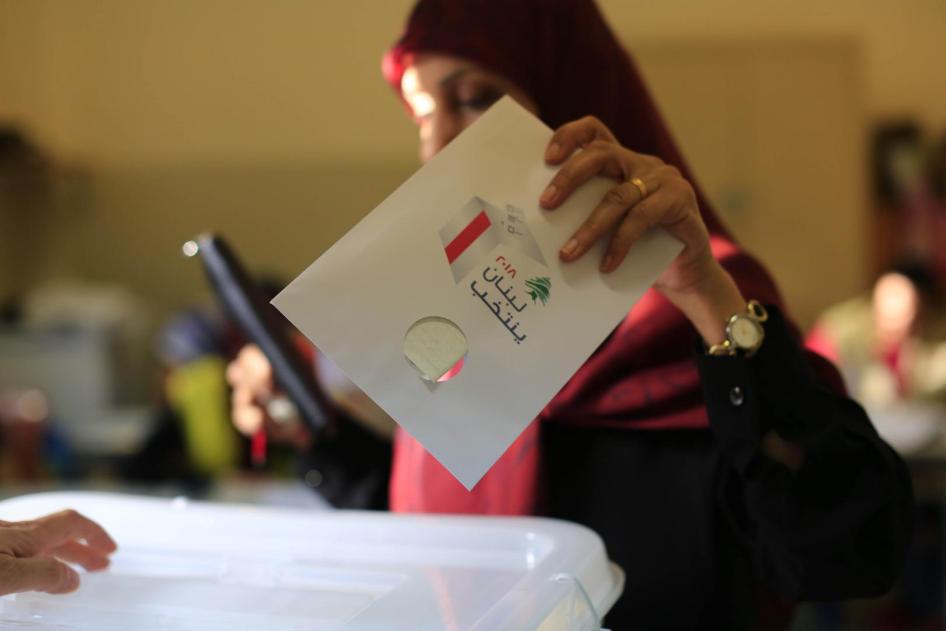(Beirut) – Lebanon made legislative progress on the waste management crisis and the status of the disappeared in 2018, but parliament failed to follow through on legislation in other key areas, including women’s and sexual minority rights and freedom of expression, Human Rights Watch said today in its World Report 2019.
“Lebanon’s new parliament has not delivered on long-awaited rights reforms, and the human rights situation in the country is stagnating,” said Lama Fakih, deputy Middle East director at Human Rights Watch. “In 2019, parliament should commit to passing critical legislation to improve Lebanon’s human rights record.”
In the 674-page World Report 2019, its 29th edition, Human Rights Watch reviewed human rights practices in more than 100 countries. In his introductory essay, Executive Director Kenneth Roth says that the populists spreading hatred and intolerance in many countries are spawning a resistance. New alliances of rights-respecting governments, often prompted and joined by civic groups and the public, are raising the cost of autocratic excess. Their successes illustrate the possibility of defending human rights – indeed, the responsibility to do so – even in darker times.
In a positive development, parliament passed a national solid waste management law in September. However, Human Rights Watch witnessed the open burning of waste in municipal open dumps, in contravention of the law, which explicitly bans the practice.
On November 12, parliament endorsed a landmark law creating an independent national commission to investigate the fate of the estimated 17,000 people kidnapped or “disappeared” during the 1975 – 1990 civil war.
However, there was no change in the status of women, who are systematically discriminated against under Lebanese law and inadequately protected from discrimination and violence. An estimated 250,000 migrant domestic workers are excluded from labor law protections and are at risk of exploitation and abuse. Lebanon is now only one of two major-destination countries for migrant domestic workers in the Middle East without labor law protections for domestic workers.
Lebanon’s 15 religious personal status laws discriminate against women and deny them basic rights in marriage, divorce, and inheritance. Unlike Lebanese men, Lebanese women cannot pass on their nationality to their children and foreign spouses. Child marriage and marital rape remain legal.
There has been no change in article 534 of the penal code, which punishes “any sexual intercourse contrary to the order of nature” with up to one year in prison despite a groundbreaking ruling by a district court of appeal that consensual sex between people of the same sex is not unlawful. Security forces used the law to interfere with freedom of assembly and association, including by banning Beirut Pride and raiding a conference on the rights of lesbian, gay, bisexual, and transgender (LGBT) people.
Criminal defamation laws were used to detain and charge people for criticizing officials, particularly on social media, threatening freedom of speech and opinion.
A prominent actor who was falsely accused of spying for Israel said in March that State Security held him at what appeared to be an unofficial detention site, where men tortured him. A military judge closed the case against him in May, failing to follow procedures set out in the 2017 anti-torture law, which should have resulted in an investigation. Lebanon has also failed to establish a national system to monitor and investigate the use of torture, following passage of a law in 2016 to create such a system.








